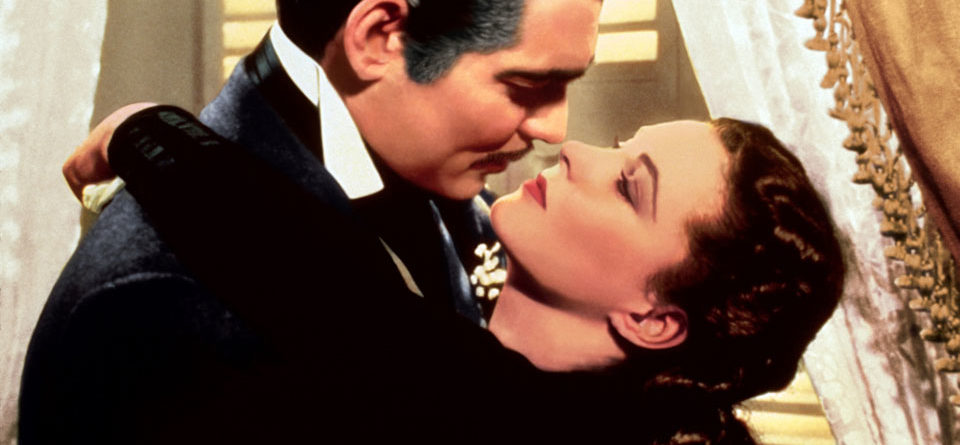Classic Hollywood: “Scarlett” Fever

On November 15, 1864, General William Tecumseh Sherman and his Union troops seized the city of Atlanta and set it on fire. When the smoke cleared, 3,000 buildings and homes were reduced to smoldering rubble. The event launched Sherman’s notorious “March to the Sea,” and six months later, the Civil War was (pun intended) history.
Fast forward to December 15, 1939 when a different kind of invasion struck the ATL. This time, the outsiders arrived by plane, not horseback. Searchlights swept the skies. Once again, Atlanta came to a standstill. Nearly 300,000 people lined the streets. The governor declared a statewide holiday. Schools closed. Businesses shuttered. What on earth was happening?
Oh, just the world premiere of Gone With the Wind.
Rabid fans of the best-selling book had waited more than three years to see David O. Selznick’s epic production. Locals were excited to catch a glimpse of Hollywood’s reigning “King” Clark Gable and his movie-star wife, Carole Lombard. Everybody wondered if British actress Vivien Leigh could possibly capture the fire and passion of quintessential Southern belle Scarlett O’Hara.
To many residents, the festivities were heady for another reason. Seventy-four years after Robert E. Lee’s surrender, Atlanta commanded the national spotlight, and in a small way, reclaimed some of its pride. All eyes were on the city, thanks to GWTW author Margaret Mitchell who was born just 35 years after the Civil War ended. Raised among relatives who were Confederate veterans, she was ten before she realized that the South lost.
In the two-day run-up to the premiere, there were parades, banquets, radio broadcasts, red carpets. Even the reclusive Mitchell made an appearance, posing for pictures with Gable and Leigh.
Yet there was also one unwelcome “guest” in attendance: Jim Crow. Loew’s Grand Theater, where the film opened, was off-limits to African-Americans like Hattie McDaniel, the actress who would make Oscar history playing Mammy. Reportedly, Clark Gable was so incensed by McDaniel’s exclusion, he vowed to boycott the screening, but she talked him out of it.
So, on that glittering December night, GWTW earned rave reviews and began its inexorable march to becoming the top-grossing movie of all time. Along the way, it captured eight Academy Awards including Best Picture, Actress, Supporting Actress, Screenplay, and Director. And for anyone who “survived” the second invasion of Atlanta, the memories would burn brighter than Sherman’s flames.
Surprising facts. Inside scoops. Join us for Gone With the Wind, the grand finale of the Film Club series 1939: Hollywood’s Greatest Year on Sunday, December 29 at 2PM…only at the Loft.
About Jeannie MacDonald
 Jeannie MacDonald is a freelance writer with a lifelong passion for classic movies. She’s written TV, radio, print and digital copy for Paramount Pictures and Warner Bros., as well as humor essays for the Los Angeles Times, Washington Post and Chicago Tribune.
Jeannie MacDonald is a freelance writer with a lifelong passion for classic movies. She’s written TV, radio, print and digital copy for Paramount Pictures and Warner Bros., as well as humor essays for the Los Angeles Times, Washington Post and Chicago Tribune.
